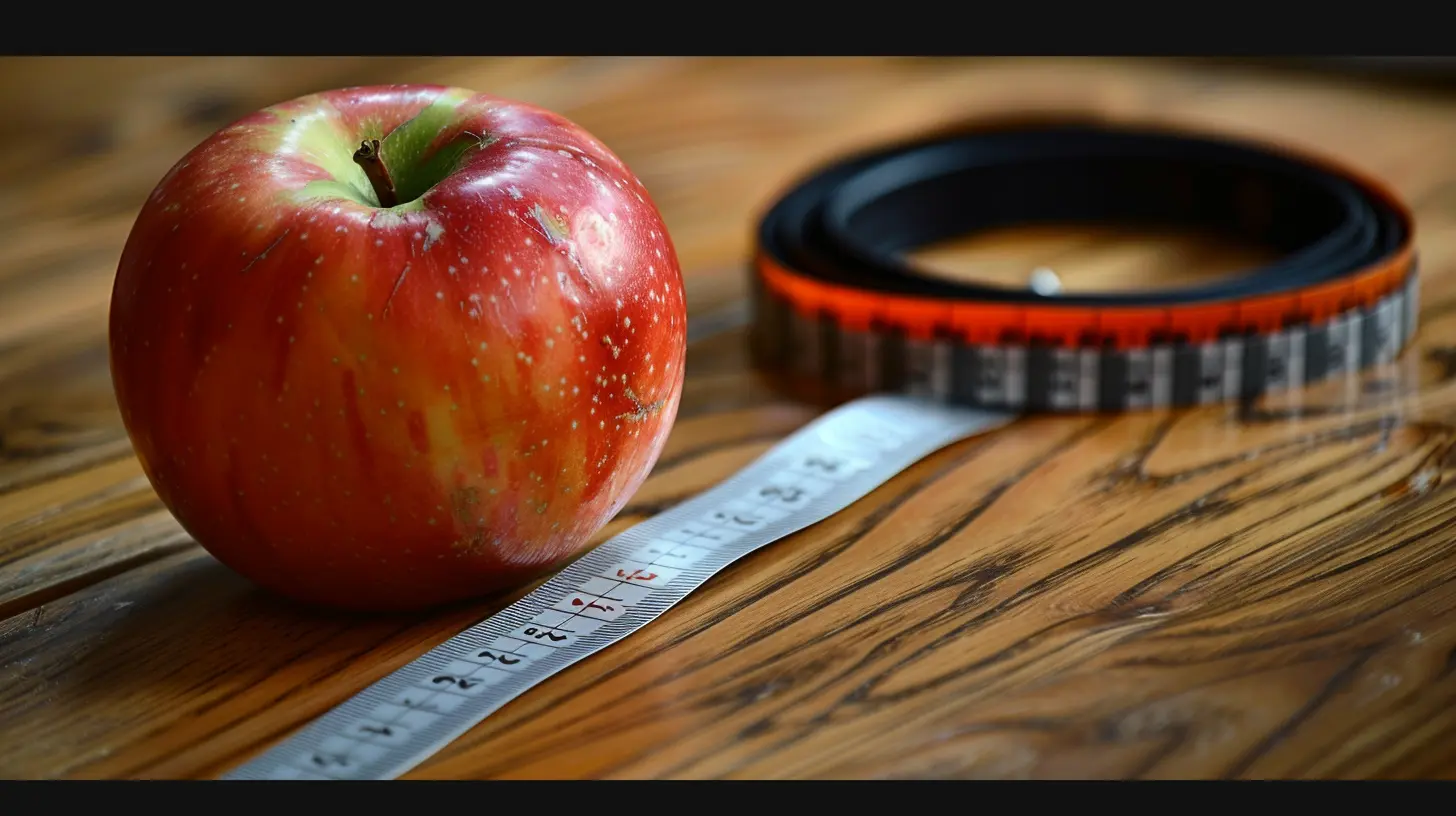Breaking Out of the Weight Loss Mindset for Long-Term Success
28 September 2025
Ah, the weight loss mindset—where every meal is a battle, every step counts (literally, thanks to your smartwatch), and guilt comes free with every bite of cake. Sound familiar? If you're stuck in this never-ending cycle of dieting, restriction, and inevitable pizza-fueled rebellion, then buckle up. We're about to break out of the weight loss mentality and step into a long-term, sustainable approach to health.

Why the “Diet Mindset” is Your Biggest Enemy
You’ve probably been told that losing weight is a simple math equation: calories in vs. calories out. That’s cute. But if it were that easy, we’d all have six-packs and eat cake for breakfast without a second thought.The problem? Diet culture has brainwashed us into believing that we must suffer to be healthy. That if we're not obsessing over every pound, we're doing it wrong. Spoiler alert: that’s not how this works.
The Restriction-Rebound Rollercoaster
Ever started a diet with the best intentions, only to find yourself devouring an entire pizza two weeks later? That’s because restriction leads to rebellion. Your body isn’t stupid—it knows when it’s being deprived, and it WILL fight back.Crash diets, extreme calorie cutting, and eliminating entire food groups (yes, even carbs!) might give you short-term results, but they also come with binge-eating episodes, metabolic slowdowns, and a side of soul-crushing frustration.
The Endless Cycle of Guilt and Shame
Diet culture also loves to make you feel bad. Ate a cookie? Well, there goes all your progress. Might as well eat the whole pack, right? Wrong. Food is not a moral decision. It's not “good” or “bad." It’s just food. But when you’re trapped in the weight loss mindset, every bite feels like a test you’re either passing or failing.It’s time to quit playing this sad little game.

Shifting the Focus: From Weight Loss to Health
Let’s be real—most diets fail because they’re not sustainable. What happens after you hit your “goal weight”? Do you just… stop eating carbs forever? Live your life counting almonds? No, thanks.Instead of obsessing over the number on the scale, shift your focus to health and well-being. That means:
- Eating nutritious foods because they make you feel good, not because you're "supposed to"
- Moving your body in ways that you actually enjoy (yes, dancing counts!)
- Listening to your hunger cues instead of sticking to a rigid meal plan
- Redefining success beyond a number on a scale
Stop Worshipping the Scale
That thing you step on every morning? Yeah, it’s not the Holy Grail of health. Your weight can fluctuate daily due to water retention, hormones, and whether or not you had extra salt last night. Judging your entire self-worth on a number is, frankly, exhausting.Instead of obsessing over the scale, focus on:
- How much energy you have
- How well you’re sleeping
- How strong you feel
- Whether your clothes fit comfortably
Newsflash: A lower number on the scale doesn’t automatically mean you’re healthier. And it certainly doesn’t mean you’re happier.

Redefining Health: What Truly Matters
Health isn’t about being a certain size—it’s about feeling good in your body and treating it with respect. Here’s how to make that happen:1. Eat for Nourishment, Not Punishment
Throw out those 1,200-calorie "meal plans" designed to make you miserable. Instead, eat foods that fuel your body, keep you satisfied, and actually taste good. Yes, that includes carbs and fats. Your body needs them to function.Think balance instead of restriction. If you love pizza, eat the pizza—just don’t make it your only food group.
2. Exercise Because You Love Your Body, Not Because You Hate It
Raise your hand if you've ever punished yourself with a brutal workout because you ate “too much” the night before. Yeah, let’s not do that anymore.Find movement that feels good:
- Dancing
- Yoga
- Strength training
- Hiking
- Walking while listening to a podcast about why diets are a scam
When exercise is enjoyable, it becomes part of your lifestyle—not a chore you dread.
3. Embrace Intuitive Eating
Your body is smarter than you think. It knows when it’s hungry. It knows when it’s full. The problem? Years of dieting have made you forget how to listen to it.Intuitive eating means:
- Eating when you're hungry, stopping when you're full
- Honoring cravings without guilt
- Recognizing that food is fuel, not the enemy
Sounds simple, right? That’s because it is.
4. Improve Your Relationship with Food
Food isn’t just fuel—it’s culture, memories, and sometimes, comfort (and that’s okay!). Instead of labeling foods as "off-limits," aim for a well-rounded diet that includes everything in moderation.Banning your favorite foods only makes you want them more. Ever noticed how that "forbidden" cupcake suddenly becomes the most enticing thing on the planet the moment you swear off sugar? Yeah, it’s basic psychology.
5. Prioritize Mental Health
Here’s a fun fact: Your mental health is just as important as your physical health. Shocking, right? Stress, anxiety, and self-criticism do more harm to your body than the occasional cheeseburger ever will.Try:
- Meditation or deep breathing exercises
- Journaling
- Talking to a therapist (because let’s be real, we all have issues)
- Surrounding yourself with people who don’t obsess over calories

The Bottom Line: Make It About Longevity, Not a Quick Fix
If your approach to health isn’t something you can maintain for the rest of your life, it’s not worth your time. Ditch the diet mindset, stop obsessing over weight loss, and start focusing on habits that actually make you feel good—without the guilt, the shame, or the unrealistic expectations.You deserve more than a lifetime of yo-yo dieting and constant food anxiety. You deserve real, sustainable health. So go ahead—eat the cookie, enjoy the workout, and live your life.
all images in this post were generated using AI tools
Category:
Weight MaintenanceAuthor:

Angelo McGillivray
Discussion
rate this article
1 comments
Uri McCaffrey
This article intrigued me! I'm curious—how can shifting our mindset truly influence lasting weight loss? What practical steps can we take to ensure our approach fosters a healthier, sustainable lifestyle instead of a quick fix?
October 9, 2025 at 3:03 PM

Angelo McGillivray
Thank you for your interest! Shifting our mindset to focus on long-term health rather than quick fixes involves embracing a positive relationship with food and exercise. Practical steps include setting realistic goals, practicing mindful eating, incorporating enjoyable physical activities, and cultivating self-compassion. These changes foster a sustainable lifestyle that promotes lasting weight loss.


